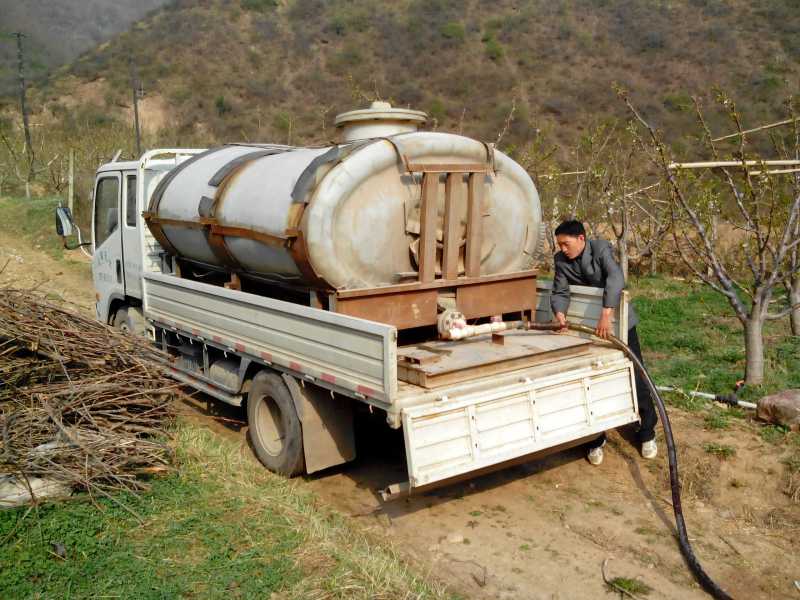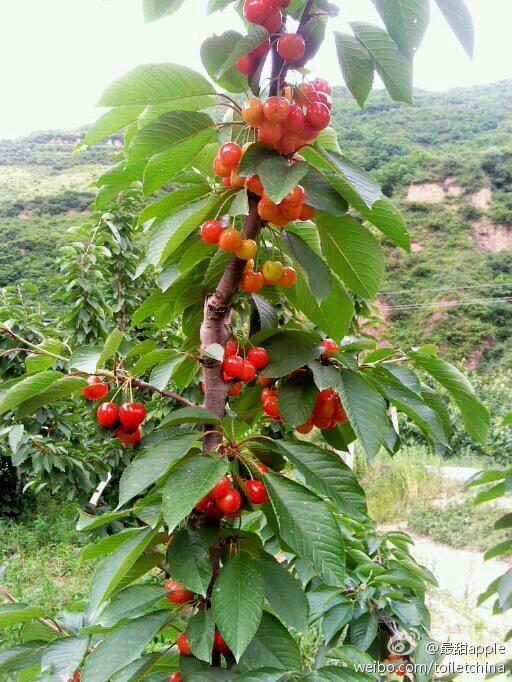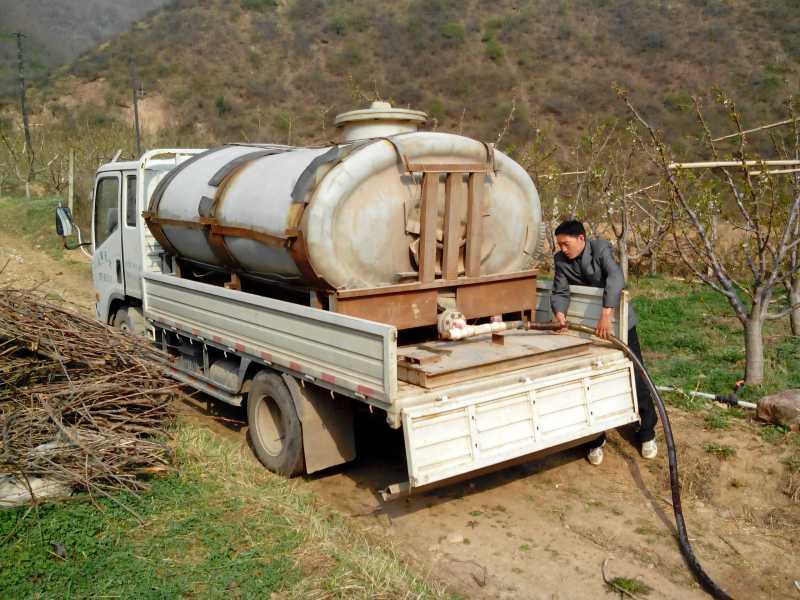- Forum
- categories
- Resource recovery
- Fertiliser, soil conditioner, production of crops
- Can organic fertilizer compete against conventional fertilizer on an open market scenario?
Can organic fertilizer compete against conventional fertilizer on an open market scenario?
17.9k views
- ben
-

- Water and sanitation engineer
Less- Posts: 107
- Karma: 11
- Likes received: 57
Re: Can organic fertilizer compete against conventional fertilizer on an open market scenario?
I like the way the question is turned "to compete". If you only look at the price of a kg of urea, for sure it can't yet. But if you take all externalities like worse water soil retention / worse resilience to viruses-bacterias / treatment cost of poluted ground water / health cost of both farmers-consumers / cost of loss of biodiversity / human cost of the long southern sahara conflict / etc ... then it gets interesting.
We see a lot of publication on "the cost of bad sanitation" including all externalities, if someone have something similar on chemical fertilizer I'd be very interested.
Best,
Ben
Please Log in to join the conversation.
You need to login to replyRe: Can organic fertilizer compete against conventional fertilizer on an open market scenario?
Thank you very much for your reply to Sahidul who actually asked me to give him an answer.
FIY. Chinese like the crops grown with the human waste and even are happy to pay a higher price for the crops.
best regards
Scott
Chen Xiang Yang, an apple dealer,is growing apples and cherries with the human waste collected from 31 school UDDTs donated by SOHO China Foundation, based in Tianshui City, Gansu Province , China. This email address is being protected from spambots. You need JavaScript enabled to view it., tel:0086 151 9380 3972
Please Log in to join the conversation.
You need to login to replyRe: Can organic fertilizer compete against conventional fertilizer on an open market scenario?
There are not any different know-how but UDDTs. I collect urine from 20,000 pupils at 31 schools equiped with UDDTs.
For apple trees, we apply urine 3 times a year..
All the apples are sold to the customers in big cities by courier companies via the Internet.
The attached pictures shows you how i am working on it.
All my produces are much more expensive than those grown with chemical fertilizer.
For example, apples, 30-50 RMB a kilo, cherries 120 RMB a kilo...
best wihses
Scott
Chen Xiang Yang, an apple dealer,is growing apples and cherries with the human waste collected from 31 school UDDTs donated by SOHO China Foundation, based in Tianshui City, Gansu Province , China. This email address is being protected from spambots. You need JavaScript enabled to view it., tel:0086 151 9380 3972
Attachments:
-
P3160302_2...2-18.JPG (Filesize: 22KB)
-
P3160308.JPG (Filesize: 33KB)
-
P7271836.JPG (Filesize: 26KB)
-
P7271838.JPG (Filesize: 41KB)
-
PA022463.JPG (Filesize: 55KB)
-
P5095164.JPG (Filesize: 41KB)
Please Log in to join the conversation.
You need to login to reply- Elisabeth
-
- Moderator
- Freelance consultant since 2012 (former roles: program manager at GIZ and SuSanA secretariat, lecturer, process engineer for wastewater treatment plants)
Less- Posts: 3372
- Karma: 54
- Likes received: 931
Re: Can organic fertilizer compete against conventional fertilizer on an open market scenario?
you said:
Can you please share the documents in details from where we can get technical know-how.
Which know-how do you mean in particular?
Do you mean the use of excreta-based fertilisers in agriculture in general? Or urine use in particular? Or documents comparing organic fertilisers (excreta-based fertilisers) versus mineral fertilisers?
There are lots of documents out there (might be a bit overwhelming even), if you narrow down the subject it is easier for us to help you.
As a starting point, I recommend that you read through the Wikipedia article on "reuse of excreta" which we created recently and which lists important references at the end:
en.wikipedia.org/wiki/Reuse_of_excreta
(to all: please help me improve this article by making improvements directly in Wikipedia or by telling me about improvements that I should make)
I have also today made a post on the forum here where I try to give some guidance on key documents in the thematic area of fertiliser, soil conditioner and production of crops:
forum.susana.org/forum/categories/17-fer...-production-of-crops
Please let me know if this is useful or if you would like to narrow down your search.
If you want to know about Scott's work in China with urine as a fertiliser for apple trees in particular, then I can recommend this thread to you:
forum.susana.org/forum/categories/175-fo...-successful-business
(but I don't think there are any publications in English from this project/business yet)
And there is probably already quite a bit or reuse of faecal sludge going on in Bangladesh, as your farmers know about the fertilising values of faecal sludge?
For faecal sludge reuse, I can recommend this book by Eawag-Sandec to you:
www.susana.org/en/resources/library/details/2100
Regards,
Elisabeth
Freelance consultant on environmental and climate projects
Please Log in to join the conversation.
You need to login to reply- sahidul93
-

- Better Environment, Better Life
Less- Posts: 20
- Likes received: 3
Re: Can organic fertilizer compete against conventional fertilizer on an open market scenario?
Can you please share the documents in details from where we can get technical know-how.
Bangladesh is an agricultural country. We may think about it and I believe it will help our farmers a lot, but they should be understood well the benefits.
Thanks,
Sahidul
Assistant WASH Officer
UNHCR, Cox’s Bazar, Bangladesh
Mobile: +8801712124330
www.unhcr.org
Please Log in to join the conversation.
You need to login to reply- joeturner
-
 Less
Less- Posts: 717
- Karma: 23
- Likes received: 185
Re: Can organic fertilizer compete against conventional fertilizer on an open market scenario?
The phosphorus in the human faeces came from somewhere, and like it or not, the majority ultimately came from rock phosphate. So directly or indirectly all systems of agriculture depend on it.. or to put it another way, global agriculture would grind to a halt without it.
In terms of an individual field, of course, human faeces and urine can help, but even there sometimes it can be difficult to supply enough phosphorus to crops without causing other problems, especially on soils which are low in P.
Please Log in to join the conversation.
You need to login to replyRe: Can organic fertilizer compete against conventional fertilizer on an open market scenario?
Third, alternative nutrient sources such as sewage sludge may be considered (Oelofse et al 2013). Indeed, these products are currently not allowed in organic farming but they represent a considerable potential nutrient supply, for P in particular, and we reported very low inflows of nutrients from urban sources to organic farms.
so clearly the shortcome in P was not due to the sludge (although it has to be looked at very carefully what material we are talking about (Urine use, fecal sludge, feces without urine, dried sludge, regular wet sludge))
Christoph
Please Log in to join the conversation.
You need to login to reply- joeturner
-
 Less
Less- Posts: 717
- Karma: 23
- Likes received: 185
Re: Can organic fertilizer compete against conventional fertilizer on an open market scenario?
The issue there is that although the organic agriculture was getting the phosphate from animal manures, the animals which were producing the manure were getting it from crops which were getting rock P inputs.
But I think many soils in many places around the world are short of P, and organic systems will be P limited.
Please Log in to join the conversation.
You need to login to replyRe: Can organic fertilizer compete against conventional fertilizer on an open market scenario?
could you give a study for that statement
recent research has shown that all systems, organic or inorganic are dependent on supplies of rock phosphate (a non-renewable resource).
From what I understand normally it is not Phosphate that is missing.
Regards
Christoph
Please Log in to join the conversation.
You need to login to reply- joeturner
-
 Less
Less- Posts: 717
- Karma: 23
- Likes received: 185
Re: Can organic fertilizer compete against conventional fertilizer on an open market scenario?
Please Log in to join the conversation.
You need to login to replyRe: Can organic fertilizer compete against conventional fertilizer on an open market scenario?
I am have been doing a large scale of growing apples with urine collected from 20,000 students in 31 schools in China.
My selling price and profit is much better than those with conventional chemical fertilizer.
Chinese prefer bioproducts al the time.
Cheer up.
best wishes
Scott
Chen Xiang Yang, an apple dealer,is growing apples and cherries with the human waste collected from 31 school UDDTs donated by SOHO China Foundation, based in Tianshui City, Gansu Province , China. This email address is being protected from spambots. You need JavaScript enabled to view it., tel:0086 151 9380 3972
Attachments:
-
 IMG_201404...1245.jpg
(Filesize: 68KB)
IMG_201404...1245.jpg
(Filesize: 68KB)
-
 20120611.jpg
(Filesize: 86KB)
20120611.jpg
(Filesize: 86KB)
-
 IMG_201404...2-07.jpg
(Filesize: 68KB)
IMG_201404...2-07.jpg
(Filesize: 68KB)
Please Log in to join the conversation.
You need to login to replyIn a site where the point of usage is close to the source, and the source is considered a waste product, organic fertilisers can be very economic (and sometimes indeed free, but I would consider that a positive point).
Joe is right though that a better understanding of soil science is needed to truely understand the cost/benefits. If proponents of organic fertilisers are right, then the long term merits of a healthy soil microbiom should strongly out weight any short term cost benefits of inorganic fertilisers.
Please Log in to join the conversation.
You need to login to reply- Forum
- categories
- Resource recovery
- Fertiliser, soil conditioner, production of crops
- Can organic fertilizer compete against conventional fertilizer on an open market scenario?








